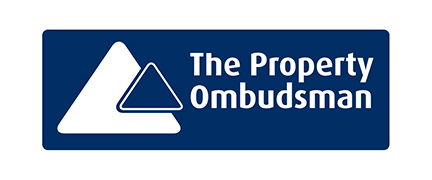
If you're a UK landlord, chances are you've heard whispers (or more like full-blown headlines) about the Renters (Reform) Bill. It's one of the most significant shake-ups in the private rental sector in decades — and it's coming sooner than you might think.
Whether you own one property or manage a whole portfolio, it’s essential to understand what the bill means for you and what steps you’ll need to take. So, here’s your no-nonsense guide to the key changes, expected timelines, and how to prepare.
What Is the Renters (Reform) Bill?
The Renters (Reform) Bill is a major piece of legislation designed to rebalance the relationship between landlords and tenants. First introduced in 2023, it’s currently making its way through Parliament and is expected to become law in late 2025 or early 2026.
The bill’s headline aim is to give tenants more security and rights — but there are big implications for landlords too, especially around eviction powers, tenancy structures, and property compliance.
Key Changes Landlords Should Know About
1. Section 21 (‘No-Fault’) Evictions to Be Scrapped
Right now, landlords can use Section 21 to evict tenants without giving a reason. That’s about to change.
What’s happening:
Section 21 will be abolished. All evictions will need a valid legal reason under the updated Section 8 rules.
What it means for you:
You’ll need to document any reason for ending a tenancy, such as rent arrears or wanting to sell the property. No more "just because" notices.
2. End of Fixed-Term Tenancies
The bill plans to replace fixed-term tenancies with rolling, periodic tenancies.
What’s changing:
Tenants will be able to give two months’ notice at any time. Landlords can only end a tenancy using one of the approved Section 8 grounds.
Why it matters:
You’ll lose the predictability of 6- or 12-month contracts, so expect more flexibility — and more movement.
3. New, Stronger Grounds for Repossession
To balance out the loss of Section 21, the government is updating and expanding Section 8.
You’ll now be able to regain possession if:
- You want to sell the property
- You or a close family member wants to move in
- There’s persistent rent arrears
- There’s anti-social behaviour
These grounds are designed to be easier to use — but evidence is everything.
4. A New Property Portal for Landlords
This will be a central registration system for all private landlords.
What's the deal?
You’ll need to register your rental properties and ensure they meet all legal requirements (gas safety, EPC, deposit protection, licensing, etc.).
Don’t skip this:
Non-compliance could lead to fines or restrictions on your ability to let properties.
5. Tenants Will Have the Right to Request a Pet
The bill gives tenants the right to request a pet — and landlords can’t unreasonably say no.
What you can do:
- Ask for pet insurance
- Refuse based on legitimate concerns (e.g. property type, lease restrictions)
Get ready to update your tenancy agreements accordingly.
6. No More Blanket Bans on Tenants on Benefits or with Children
Landlords will no longer be allowed to reject tenants just because they’re:
- Receiving benefits
- Renting with children
This type of discrimination could become illegal, so be careful how you word your adverts and screening questions.
When Will the Changes Happen?
The bill is still in progress, but current expectations suggest:
- Late 2025 to early 2026: First changes likely to be rolled out
- Section 21 ban: Will only be implemented after court reforms are in place, possibly as a second phase
It’s likely the changes will be phased in, starting with the property portal and new tenancy rules.
What Should Landlords Do Now?
Here are some practical steps to get ahead:
Audit your current tenancies
Make sure your tenancy agreements are up to date and flexible.
Understand the new Section 8 grounds
Brush up on when and how you can legally end a tenancy — and keep clear records.
Gather your compliance documents
You’ll need them ready for the property portal (gas safety, deposit info, EPC, etc.).
Review your insurance
Check that your policy covers things like pet damage and legal costs.
Stay informed
Subscribe to newsletters or join a landlord association. Things are moving fast — don’t get caught out.
Final Thoughts
The Renters (Reform) Bill is a big step toward reshaping renting in England. While the changes might feel like a challenge, they’re also an opportunity to operate more professionally and build longer-term, positive tenancies.
If you're prepared and proactive, there’s no reason you can’t thrive under the new rules.
Need help preparing for the changes?
If you're unsure how the Renters (Reform) Bill will affect your property or what steps to take next, get in touch with the team at PropertyLine. We're here to help landlords stay compliant, informed, and confident through every change.
Contact us today for tailored advice, or subscribe to our blog for ongoing updates as the bill progresses through Parliament.















